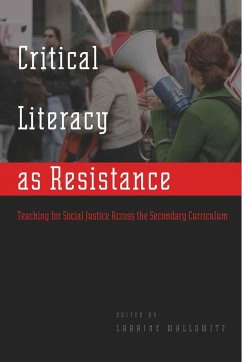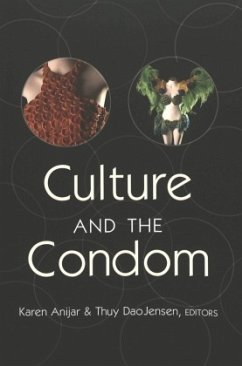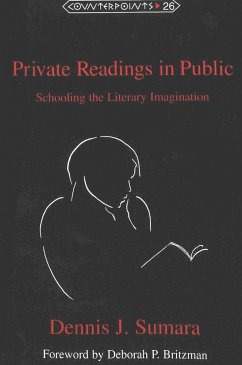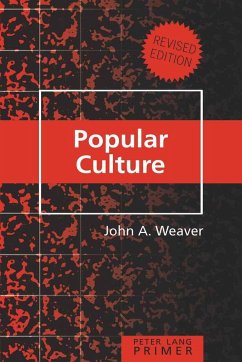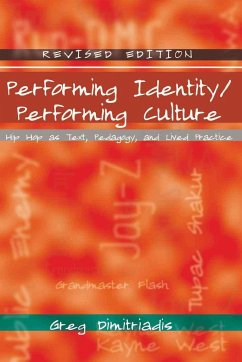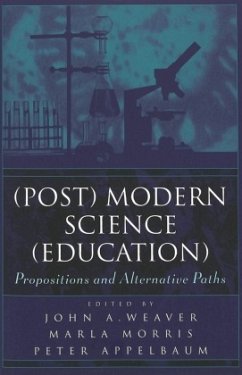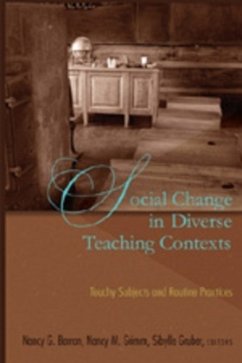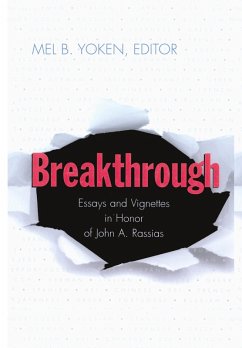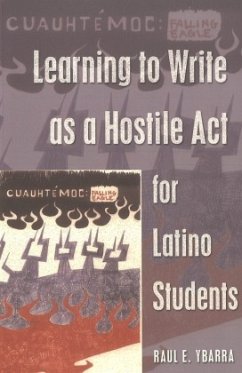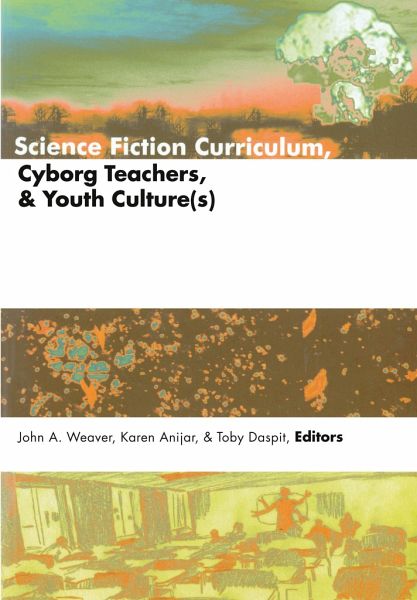
Broschiertes Buch
Science Fiction Curriculum, Cyborg Teachers, and Youth Culture(s)
Versandkostenfrei!
Versandfertig in 6-10 Tagen

PAYBACK Punkte
0 °P sammeln!





Science Fiction Curriculum, Cyborg Teachers, and Youth Culture(s) is a collection of essays sutured together by their use of science fiction as a departure from contemporary educational «realities». The authors, inspired by the visions, styles, and insights of various science fiction texts, films, and rap music, seek to transform the future of educational possibilities. Science Fiction Curriculum offers alternative paths to current regressive educational practices, policies, and reforms, and invites readers to venture into uncharted dimensions.
The Editors: John A. Weaver is Associate Professor at Georgia Southern University. He has co-edited, with Toby Daspit, Popular Culture and Critical Pedagogy (2000), with Peter Appelbaum and Marla Morris (Post) Modern Science (Education) (Peter Lang, 2001), with Marla Morris Difficult Memories: Talk in a (Post) Holocaust Era (Peter Lang, 2002) and is the author of Rethinking Academic Politics in (Re)Unified Germany and the United States (2001). Karen Anijar is an Assistant Professor in the College of Education, Division of Curriculum and Instruction at Arizona State University. Her most recent book is Teaching Toward the 24th Century: Star Trek as Social Curriculum. She has also written on the political economy, time in curriculum, critical multiculturalism, Elvis, Selena, Chupacabras, apocalypse and milleniarism. Toby Daspit is an assistant professor in the department of teaching, learning, and Leadership at Western Michigan University. He is the co-editor, with John A. Weaver, of Popular Culture and Critical Pedagogy (2000), and Imagining the Academy: Higher Education and Popular Culture (forthcoming) with Susan Edgerton and Gunilla Holm. He is also the co-author, with Pamela Dean and Petra Munro, of Talking Gumbo: A Teacher¿s Guide to Oral History in the Classroom (1998).
Produktdetails
- Counterpoints 158
- Verlag: Peter Lang
- Artikelnr. des Verlages: 65044
- 1. Auflage
- Seitenzahl: 264
- Erscheinungstermin: 18. November 2003
- Englisch
- Abmessung: 230mm x 160mm x 15mm
- Gewicht: 413g
- ISBN-13: 9780820450445
- ISBN-10: 0820450448
- Artikelnr.: 23899107
Herstellerkennzeichnung
Libri GmbH
Europaallee 1
36244 Bad Hersfeld
gpsr@libri.de
«The authors and editors challenge and inform through their examination of science fiction and its implications for policy, curriculum, and education beyond the classroom. Yet, like all good science fiction writers, they are playful and inventive in finding ways to provoke us into thinking about the futures, worlds and selves we are creating.» (Sarah Brem, Assistant Professor of Educational Psychology at Arizona State University)
«Karen Anijar, John A. Weaver and Toby Daspit have edited the most engaging and fascinating collection of articles about curriculum studies written for people concerned with schools of and for the XXI century. Today it is naïve and dangerous to think that we can understand our students and develop effective
«Karen Anijar, John A. Weaver and Toby Daspit have edited the most engaging and fascinating collection of articles about curriculum studies written for people concerned with schools of and for the XXI century. Today it is naïve and dangerous to think that we can understand our students and develop effective
Mehr anzeigen
curriculum and pedagogical practices without exploring and understanding what matters for them, and science fiction, vampires, ghosts and cyborg tales do matter!» (Gustavo E. Fischman of California State Unversity, Los Angeles and Arizona State University)
«Take a romp on the wild side and read this book. It is out of this world. The writers launch serious musings on serious ethical, political and ontological issues of our time by discussing the characters of SF - cyborgs, angels, spawns, aliens, freaks, monsters, mutants, vampires, cyberpunks - as metaphors. SF provides a site from which to celebrate dream, vision and imagination as well as to retaliate against that which prevents movement, change, and ecstasy. Since many of today's students are born into the information age, this book generates profound thinking about the lures and traps of technology and thereby has utter relevance for tomorrow. I applaud the editors' brilliance in recognizing that SF has the power of myth and, as such, is at the heart of things.» (Mary Aswell Doll, Professor of Literature and author of 'Like Letters in Running Water: A Mythopoetics of Curriculum', Savannah College of Arts and Design)
«Take a romp on the wild side and read this book. It is out of this world. The writers launch serious musings on serious ethical, political and ontological issues of our time by discussing the characters of SF - cyborgs, angels, spawns, aliens, freaks, monsters, mutants, vampires, cyberpunks - as metaphors. SF provides a site from which to celebrate dream, vision and imagination as well as to retaliate against that which prevents movement, change, and ecstasy. Since many of today's students are born into the information age, this book generates profound thinking about the lures and traps of technology and thereby has utter relevance for tomorrow. I applaud the editors' brilliance in recognizing that SF has the power of myth and, as such, is at the heart of things.» (Mary Aswell Doll, Professor of Literature and author of 'Like Letters in Running Water: A Mythopoetics of Curriculum', Savannah College of Arts and Design)
Schließen
Für dieses Produkt wurde noch keine Bewertung abgegeben. Wir würden uns sehr freuen, wenn du die erste Bewertung schreibst!
Eine Bewertung schreiben
Eine Bewertung schreiben
Andere Kunden interessierten sich für


